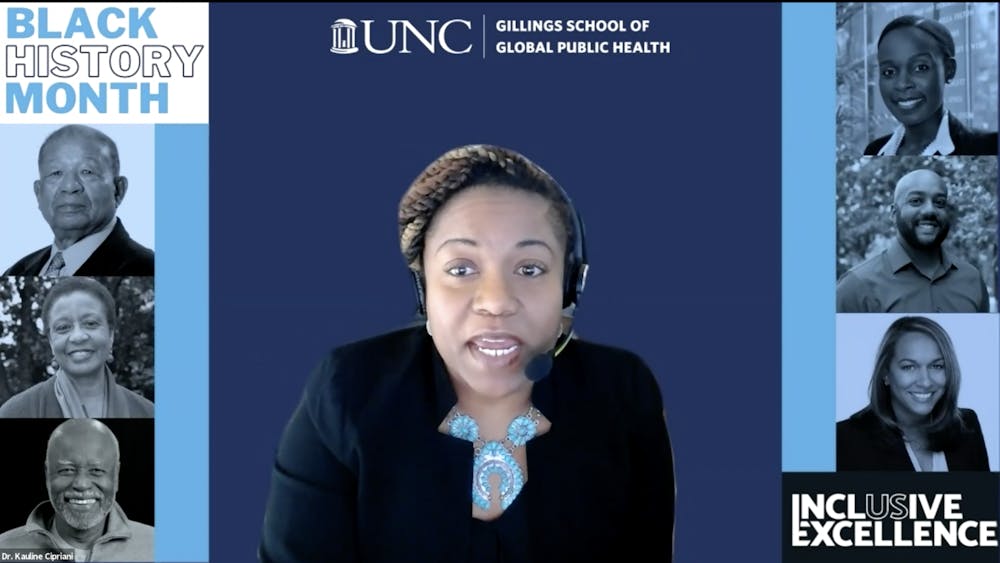The UNC Minority Student Caucus hosted the 42nd annual Minority Health Conference on Thursday and Friday with the theme of Body & Soul: The Past, Present and Future of Health Activism.
Chairpersons Shewit Weldense and Rachel Singley, both post-graduate students at the Gillings School of Global Public Health, spearheaded the event.
The event hosted speakers from different universities and organizations in the United States and abroad. This year’s theme focused on health activism and equity relating to physical well-being and the emphasized need for comprehensive emotional care for marginalized communities.
The conference is the largest and longest-running student-led health conference in the United States. It typically attracts over 500 people annually, in addition to others who watch it through a livestream. Due to the pandemic, this is the first year the conference has been held exclusively online.
A central point of the virtual event was breaking down taboos surrounding mental health awareness within minority groups.
Sharrelle Barber of Drexel University, one of the keystone speakers, said she is passionate about psychological care when fighting against systems that perpetuate racism in health care.
“Rest is resistance,” Barber said. “Radical self-care is not a luxury.”
To fight against the inequities that people from marginalized communities face, especially within the Black community, Barber stressed the importance of mental well-being. She focused on the disproportionate effect that COVID-19 has had on people of color and explained how it has taken a toll on these communities.
Barber reiterated that in order to help address disparities in medical treatment, people must also take care of their emotional health.




